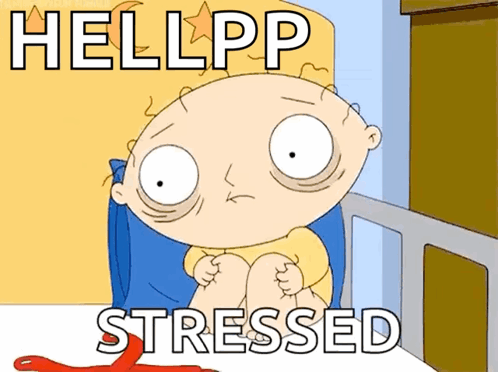How Stress Affects Your Body and Mind: Strategies to Find Balance

Stress is something we all experience, yet its effects on our body and mind are often underestimated. From a racing heart before a big meeting to sleepless nights over financial worries, stress shows up in many forms. While some stress can motivate us to perform under pressure, chronic stress can take a serious toll on our well-being.
In this article, we’ll explore how stress affects your body and mind and share actionable strategies to help you find balance and regain control.
The Science Behind Stress: What Happens to Your Body and Mind?
Stress triggers a natural response known as the “fight-or-flight” reaction. When you encounter a stressful situation, your body releases hormones like adrenaline and cortisol, which prepare you to act quickly. While this response is useful in short bursts, prolonged stress keeps these hormones elevated, leading to:
Physical Effects of Stress
- Increased Heart Rate and Blood Pressure
Chronic stress forces your heart to work overtime, increasing the risk of cardiovascular issues. - Muscle Tension
Persistent tension in muscles, especially in the neck and shoulders, can lead to headaches and body pain. - Weakened Immune System
Stress can suppress immune function, making you more vulnerable to illnesses. - Digestive Problems
Stress often disrupts digestion, causing issues like stomachaches, bloating, or even irritable bowel syndrome (IBS).
Mental and Emotional Effects of Stress
- Anxiety and Irritability
Prolonged stress can make you feel on edge or overwhelmed. - Difficulty Concentrating
Stress impacts cognitive function, making it hard to focus or remember things. - Sleep Disturbances
Racing thoughts and tension can lead to insomnia or poor-quality sleep. - Emotional Exhaustion
Chronic stress drains your emotional reserves, leaving you feeling burned out and unmotivated.
Strategies to Find Balance and Manage Stress
The good news is that you can take steps to reduce the effects of stress and bring more balance into your life. Here are some practical and evidence-based strategies to help you manage stress effectively:
1. Prioritize Mindfulness and Relaxation Techniques
Mindfulness helps you focus on the present moment and reduce anxiety.
- Try meditation or deep breathing exercises for 10–15 minutes daily.
- Apps like Calm and Headspace offer guided practices to get started.
- Practice progressive muscle relaxation to release physical tension.
2. Stay Physically Active
Exercise is a natural stress reliever that boosts endorphins, your body’s feel-good chemicals.
- Engage in activities you enjoy, such as walking, dancing, or swimming.
- Aim for at least 150 minutes of moderate exercise per week.
- Even short bursts of movement, like stretching at your desk, can help.
3. Establish Healthy Boundaries
Overcommitting can lead to burnout, so learn to say no when necessary.
- Delegate tasks when possible and focus on what truly matters.
- Create “unplugged” times to disconnect from work or social media.
4. Connect with Others
Social support is a powerful stress buffer.
- Share your feelings with trusted friends, family, or a therapist.
- Join support groups or communities that share similar challenges.
- Make time for quality connections that uplift and energize you.
5. Develop a Stress-Resilient Mindset
Reframing challenges can make them feel less overwhelming.
- Practice gratitude by noting three things you’re thankful for daily.
- Focus on what you can control and let go of what you can’t.
- Celebrate small victories to maintain a sense of progress.
When to Seek Professional Help
Sometimes, stress can feel too overwhelming to manage on your own. If stress is significantly impacting your daily life, relationships, or physical health, it may be time to consult a professional. Therapists and counselors can offer tools like cognitive-behavioral therapy (CBT) to help you navigate stress more effectively.
Conclusion: You Have the Power to Restore Balance
Stress may be a part of life, but it doesn’t have to define it. By understanding how stress affects your body and mind and implementing practical strategies to manage it, you can regain control and lead a healthier, more balanced life.
Remember, small, consistent steps can lead to big changes. Whether it’s taking a mindful moment, reaching out to a friend, or prioritizing self-care, every effort you make contributes to a stronger, more resilient you.
Takeaway: You’re not alone in this journey, and with the right tools, you can navigate stress with confidence and strength.